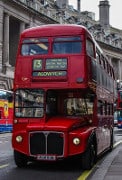We use “would rather” to describe a preference of one thing compared to another thing.
Examples:
He would rather watch TV than read a book.
She would rather be a nurse than be a teacher.

The activity you prefer comes immediately after “rather” and the activity you do not have a preference for comes after “than“.
Form of would rather
Affirmative full form
subject + “would rather” + base form + “than” + base form
I would rather walk than run.
you would rather walk than run.
he/she/it would rather walk than run.
we would rather walk than run.
you would rather walk than run.
they would rather walk than run.
Affirmative contracted form
subject + “’d rather” + base form + “than” + base form
I’d rather walk than run.
you’d rather walk than run.
he’d/she’d/it’d rather walk than run.
we’d rather walk than run.
you’d rather walk than run.
they’d rather walk than run.
Negative full form
subject + “would rather” + “not” + base form
I would rather not run.
you would rather not run.
he/she/it would rather not run.
we would rather not run.
you would rather not run.
they would rather not run.
Negative contracted form
subject + “‘d rather” + “not” + base form
I’d rather not run.
you’d would rather not run.
he’d/she’d/it’d rather not run.
we’d rather not run.
you’d rather not run.
they’d rather not run.
Affirmative form with 2 different subjects
If there are 2 different subjects in the sentence, the form is very different:
subject + “would rather” + different subject + past simple
I would rather they stayed here.
you would rather they stayed here.
he/she/it would rather they stayed here.
we would rather they stayed here.
you would rather they stayed here.
they would rather I stayed here.
The form is the past simple but we are referring to the present or future.
Negative form with 2 different subjects
subject + “would rather” + different subject + negative past simple form
I would rather they didn’t stay here.
you would rather they didn’t stay here.
he/she/it would rather they didn’t stay here.
we would rather they didn’t stay here.
you would rather they didn’t stay here.
they would rather I didn’t stay here.
Again – The form is the past simple but we are referring to the present or future.
More example sentences with “would rather”
Examples with 1 subject
Would you like to watch TV or would you rather go to the cinema?
I would rather go to the cinema.
I would rather not watch TV.
I hate trains. I would rather get the bus.

Examples with 2 subjects
I would rather you asked before using my computer.

Mark would rather you didn’t call him after 10 o’clock.
I hate trains. I would rather we got the bus.
Jane: I’ll be there at 11 o’clock.
Mark: I’d rather you arrived before 10 o’clock.
More lessons
Private online English lessons
When to use commas in English
Modal verb WOULD – Form, use and meaning
USED + infinitive
Irregular verbs in English
English lessons on our Youtube channel


Akpoavowere vincent says
Awesome
Samba says
What does the sentence meaning give when two subjects are different with would rather?
Iftikhar Danish says
It is a very helpful video. I appreciate you to make this kind of videos. Keep it on. May GOD help you and give power to you.
Abdul Rehan Khan says
I am learning English language from your vedio channel.
NAMUSOKE JULIET says
Thank you so much .Help please use …rather,..than…Our brother prefers studying in boarding schools to studying in day schools.